McDonald's hot coffee lawsuit
description: a 1994 legal case where a woman sued McDonald's after suffering third-degree burns from a cup of coffee; the case is often cited in debates over tort reform.
13 results
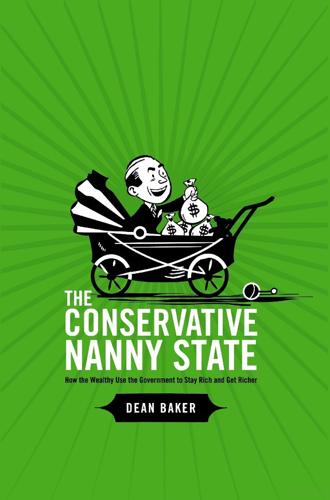
The Conservative Nanny State: How the Wealthy Use the Government to Stay Rich and Get Richer
by
Dean Baker
Published 15 Jul 2006
The Nanny State Conservative’s Myth of the Broken Legal System The nanny state conservatives illustrate the problem of the U.S. legal system with a collection of horror stories. Probably the most famous is the one about the elderly woman who won millions of dollars from McDonald’s after she burned herself by spilling hot McDonald’s coffee in her lap while driving. A close second is the story about the would-be burglar who broke his neck by falling through a skylight, and then won millions of dollars from the homeowner in damages. The lesson the nanny state conservatives would have us take from these stories is that the legal system is out of control.
…
The damages awarded in these 1 An account of this case can be found in Burke (2002, pp. 28-29). 68 cases, and many others like them, are not intended merely to compensate the people who had brought the suits, they are also intended to punish the defendants for what the juries viewed as bad behavior. The jury felt that McDonald’s had been wrong to risk burning customers by making their coffee unusually hot so that the company could save a fraction of a penny on every cup. They were not simply thinking of how to compensate the woman who was burned, they wanted to teach McDonald’s a lesson that would get them to change their practices. 2 Similarly, the jury that awarded damages to the injured student wanted to send a message to this particular school and others like it.
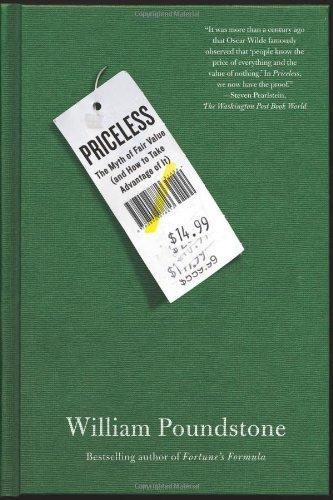
Priceless: The Myth of Fair Value (And How to Take Advantage of It)
by
William Poundstone
Published 1 Jan 2010
Reed Morgan, had ridden in this rodeo before. In 1986 he sued McDonald’s on behalf of a Houston woman who also had third-degree burns from a coffee spill. In his most mesmerizing Deep South baritone, Morgan advanced the legally ingenious theory that McDonald’s coffee was “defective” because it was too hot. McDonald’s quality control people said the coffee should be served at 180 to 190 degrees Fahrenheit, and this was shown to be hotter than some other chains’ coffee. The Houston case was settled for $27,500. Morgan monitored subsequent coffee lawsuits closely. He knew that in 1990 a California woman had suffered third-degree burns from McDonald’s coffee and settled, with no great fanfare, for $230,000.
…
Market 52 For the Love of God 53 Antidote for Anchoring 54 Buddy System 55 The Outrage Theory 56 Honesty Box 57 Money, Chocolate, Happiness Notes Sources Index Part One “The more you ask for, the more you get” One The $2.9 Million Cup of Coffee In 1994 an Albuquerque jury awarded Stella Liebeck $2.9 million in damages after she spilled a piping-hot cup of McDonald’s coffee on herself. This resulted in third-degree burns and precious little sympathy from the American public. Late-night comics and drive-time DJs turned Liebeck into a punch line. Talk radio pundits saw the lawsuit as Exhibit A to What’s Wrong with Our Legal System. A Seinfeld episode had Kramer suing over spilled coffee, and a website inaugurated the “Stella Awards”—booby prizes for the wackiest perversions of the justice system.
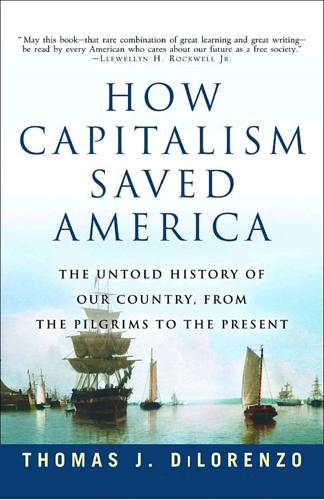
How Capitalism Saved America: The Untold History of Our Country, From the Pilgrims to the Present
by
Thomas J. Dilorenzo
Published 9 Aug 2004
For all practical purposes, “contracts are dead, at least insofar as they attempt to allocate responsibility for accidents, ahead of time.”14 Product safety standards have effectively been socialized, and lawyers now have incentives to spend their lives digging up cases and evidence against corporations because some consumers stupidly misused their products. An infamous example that was widely publicized is of an elderly woman who put a cup of piping-hot McDonald’s coffee between her legs while driving her car and scalded herself after making a sharp turn and spilling the coffee. She and her lawyers sued McDonald’s, accepting no responsibility at all for her own foolishness, and a jury originally awarded her a multimillion-dollar settlement. The award was eventually reduced to a mere $200,000 or so, and McDonald’s was apparently pleased to get off that cheaply.
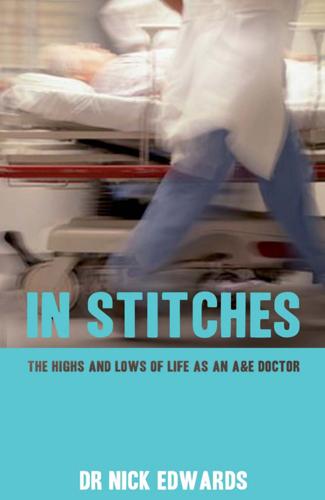
In Stitches
by
Nick Edwards
Published 1 Jan 2007
She had a known allergy, but says she now ignores all disclaimers for ‘may contain nuts or nut extracts or made in a factory where nuts are used or once been within a 50-mile radius of a nut’ otherwise she would have nothing to eat. They are now put on everything for fear of being sued and it is completely uninformative, so she ignores them all. One thing I don’t object to, and others do, are stupid warnings. For example: KP nuts, WARNING. MAY CONTAIN NUTS. McDonalds coffee, WARNING. CONTENTS ARE HOT AND MAY SCALD. I think these signs save the lives of a particular subgroup of people who often attend A&E and I thank the companies for their corporate responsibility. 9. The new ethos of excessive risk management and risk avoidance–schools and clubs are scared to take their kids on trips for fear of the consequences of an accident.
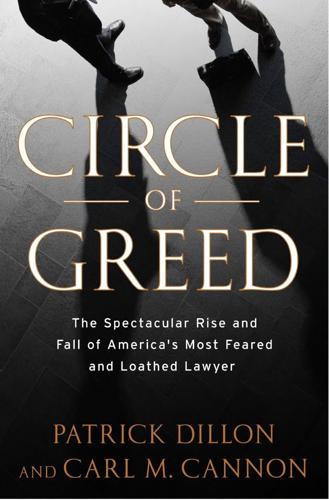
Circle of Greed: The Spectacular Rise and Fall of the Lawyer Who Brought Corporate America to Its Knees
by
Patrick Dillon
and
Carl M. Cannon
Published 2 Mar 2010
Nor were class action securities suits often mentioned in Washington during Reagan’s time in the White House, and never once by the president himself. What animated Reagan, and ultimately the Republican Party, were so-called “frivolous” lawsuits, whose causes of action seemed tortured in their logic, or civil cases in which the verdict sounded comically excessive: $3 million in damages to the New Mexico woman who put her hot McDonald’s coffee cup between her legs—and was scalded when she opened the lid by pulling it toward herself; $2.7 million to the West Virginia convenience store clerk who claims she hurt her back opening a pickle jar; another $2 million to a doctor from Alabama who sued when BMW touched up his new car with paint without telling him.
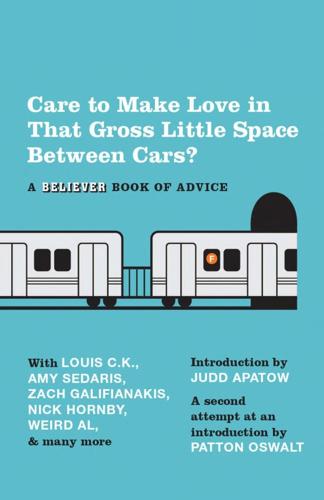
Care to Make Love in That Gross Little Space Between Cars?: A Believer Book of Advice
by
The Believer
,
Judd Apatow
and
Patton Oswalt
Published 6 Mar 2012
To answer your question, this disturbing occurrence happened around the same time coffee got hoity-toity and phones became a hot topic of conversation. If I’m within earshot of you ordering a Venti Vanilla Soy Decaf Latte, prepare to have it spilled in your lap like that dumb cunt who burnt her cooch up with McDonald’s coffee ’cause she didn’t realize it was HOT! And if I’m at a party and you start telling me about the latest app you just downloaded for your brand-new Droid, pray you have an app for extracting the phone from your anus. So, Midge, have a good ol’ Hershey’s bar on me, and if you’d like to learn more about chocolate, buy my newest tome, Chocolate, Please: My Adventures in Food, Fat and Freaks.
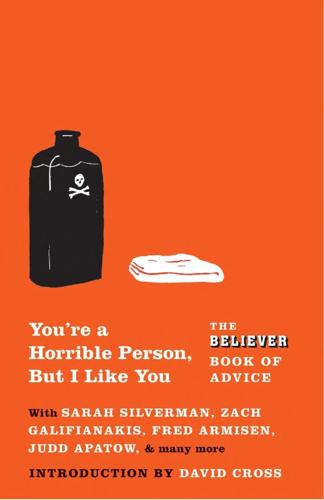
You're a Horrible Person, but I Like You: The Believer Book of Advice
by
The Believer
Published 15 Mar 2010
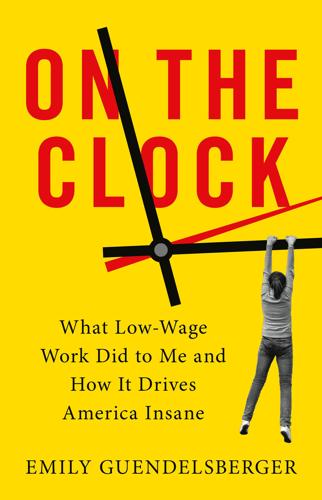
On the Clock: What Low-Wage Work Did to Me and How It Drives America Insane
by
Emily Guendelsberger
Published 15 Jul 2019
• If you neglected to put that information into the system because the interface makes doing this a pain in the ass, apologize and ask the customer to tell you again. She will usually be happy to do so. 4. Get a wooden coffee stirrer and stir. 5. Toss the stirrer, grab the appropriate lid, and put it on, double-checking that it’s super secure—for reasons unclear to me, McDonald’s keeps its coffee undrinkably, scaldingly hot, and a spill can burn you in seconds. 6. Pick up the coffee, grab a tray in your other hand, and carry them over to the hot box—the centrally located window connecting kitchen and counter. 7. Put the tray down by the hot box, put the coffee on the tray, then continue over to the fry station on the far left wall. 8.
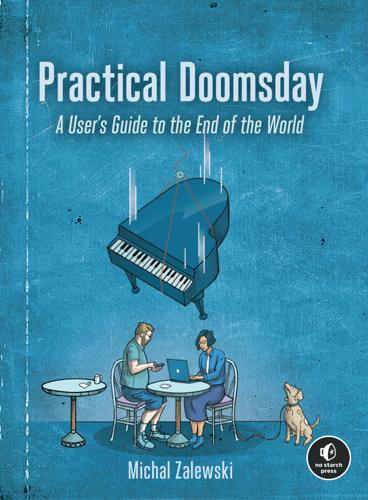
Practical Doomsday: A User's Guide to the End of the World
by
Michal Zalewski
Published 11 Jan 2022
Heck, good old butter has fewer calories than olive or coconut oil, so a sophisticated and “healthy” bruschetta isn’t far off from a less-reputable southern delicacy: deep-fried butter on a stick. The same goes for fast-food choices. The supposedly nutritious burrito from Chipotle easily packs four times as many calories as a greasy burger from McDonald’s, while a loaded coffee at Starbucks is about the same as two hot dogs with a heaping side of mashed potatoes to boot. All this probably helps explain the abysmal track record for most weight loss regimes; the self-reported long-term success rate for people who try to slim down appears to be around 20 percent.3 Establishing a “No Diet” Diet Perhaps the most sustainable approach to weight loss is to make sure that our diets don’t feel like diets.
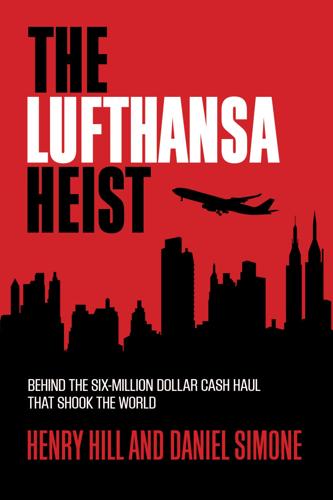
The Lufthansa Heist: Behind the Six-Million-Dollar Cash Haul That Shook the World
by
Henry Hill
and
Daniel Simone
Published 31 Jul 2015
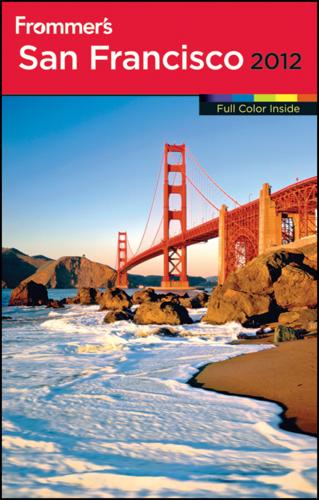
Frommer's San Francisco 2012
by
Matthew Poole
,
Erika Lenkert
and
Kristin Luna
Published 4 Oct 2011
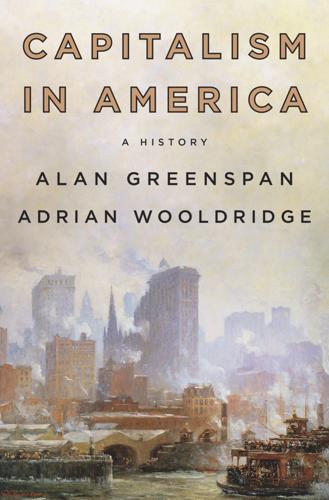
Capitalism in America: A History
by
Adrian Wooldridge
and
Alan Greenspan
Published 15 Oct 2018
In 2013, a school district in Maryland banned, among other things, pushing children on swings, bringing homemade food into school, and distributing birthday invitations on school grounds.8 It continues in college, where professors have provided their charges with “safe spaces” and “trigger warnings.” It extends to every aspect of daily life. McDonald’s prints warning signs on its cups of coffee pointing out that “this liquid may be hot.” Winston Churchill once said to his fellow countrymen, “We have not journeyed across the centuries, across the oceans, across the mountains, across the prairies, because we are made of sugar candy.”9 Today, thanks to a malign combination of litigation, regulation, and pedagogical fashion, sugar-candy people are everywhere.

California
by
Sara Benson
Published 15 Oct 2010